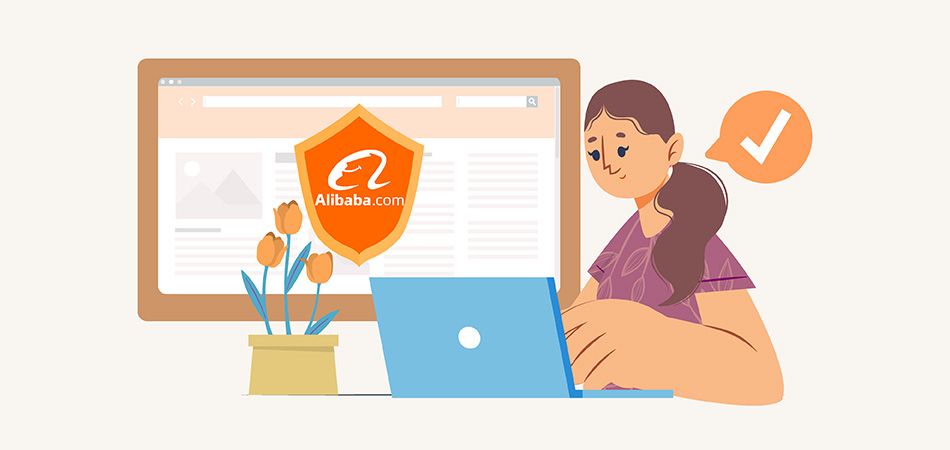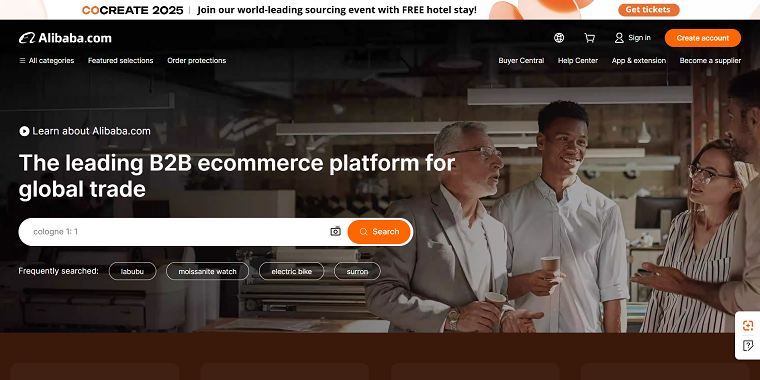Is Alibaba Safe? Proven Tips to Buy Securely and Avoid Scams in 2025

Is Alibaba safe for buyers and small businesses? This question is common among those who want to source products globally. Alibaba serves as a hub connecting millions of buyers with thousands of suppliers, offering an extensive range of products at prices that distinguish themselves in the market. However, worries about fraud, counterfeit products, and payment security persist.
While Alibaba is a trusted platform facilitating over 1 billion transactions yearly, risks exist — especially for inexperienced buyers. This article explores how safe Alibaba is, common risks, buyer protections in place, and actionable tips to help you shop safely. Understanding these will empower you to use Alibaba confidently and avoid pitfalls.
What Is Alibaba and How Does It Work?
Alibaba is the world’s largest B2B marketplace, primarily designed to connect buyers with manufacturers and wholesalers for bulk purchasing. Unlike its sister platform AliExpress, which focuses on direct consumer sales, Alibaba caters to businesses ordering large quantities.

In 2023, Alibaba reported over 1 billion transactions facilitated on its platform, involving more than 150,000 registered suppliers globally. These suppliers span a myriad of product categories, ranging from electronics and textiles to household items and machinery.
Then, under such circumstances, is purchasing through Alibaba secure? It’s important to remember that Alibaba itself does not produce or guarantee products; it acts as a platform connecting buyers and sellers.
Each supplier functions independently, which means there can be significant variations in quality and service. This is why it’s crucial for buyers to verify suppliers and understand Alibaba’s protection mechanisms before committing large orders.

|
Find Better Supplier For Products DSers Supplier Optimizer - One click to filter out the most proper suppliers for your products |
The platform’s wide reach and vast supplier network make it appealing for small businesses looking to source competitively priced goods. But the sheer scale also increases the chance of encountering fraudulent or low-quality sellers if due diligence is not followed.
Common Risks of Buying on Alibaba
Buying on Alibaba can be a great way to source products globally, but to buy safely and with confidence, it’s important to understand and avoid several common risks despite the platform’s scale and reputation.
Fake or Scam Suppliers
Some sellers create fake companies or fake licenses to trick buyers. In 2022, about 15% of cross-border e-commerce complaints were scams like these. These sellers frequently take your money and then vanish without a trace.
Quality Issues
Over 20% of buyers report receiving products that don’t match the sample or description. Counterfeit goods and products of inferior quality can damage your business's reputation.
Communication Problems
Language barriers may give rise to misunderstandings and slow responses, resulting in delays and more challenging problem-solving.
Shipping & Customs Delays
Since 2020, shipping has gotten slower. DHL’s 2023 report shows a 12% rise in delays caused by port congestion and customs checks, which can hurt your delivery times.
Payment Risks
Some buyers lose money by paying outside Alibaba, where there’s no protection or refund.
For example, a Reddit user shared their experience where a supplier vanished after payment, leaving them with no product or refund.
Stories like this highlight the importance of taking precautions and using Alibaba’s protection tools. If you’re still wondering how safe is Alibaba, these examples show that it largely depends on the buyer’s behavior.
To help you identify risky suppliers before it's too late, here are some common red flags to watch out for when browsing Alibaba.
| 🚩 Red Flag | What It Might Mean |
|---|---|
| Urging you to pay off-platform | Likely scam, no protection |
| Unusually low prices | Could indicate counterfeit or bait-and-switch |
| Refuses to send samples | Hiding poor product quality |
| No business license or vague details | Unverified or fake supplier |
| Poor grammar or slow replies | Lack of professionalism |
Spotting just one of these signs doesn't always mean a scam—but multiple red flags should make you pause and reconsider the deal. Exercising caution is crucial for safeguarding your finances and business.
Alibaba’s Buyer Protection Features
Alibaba has introduced several robust measures to protect buyers and build trust. If you're asking yourself, is Alibaba trustworthy, here’s what the platform offers to reassure you:
Trade Assurance Program
Your money is held safely until you confirm the order is good. If products are late or not as promised, Alibaba helps solve the problem and can give you a refund. In 2024, over 20 million orders used this service, with a 95% success rate.
Verified Suppliers & Gold Supplier Badge
Alibaba checks suppliers’ business licenses and inspects their factories. Verified sellers get badges that show they’re trustworthy, cutting fraud risk by up to 80%.
Escrow Payment System
Alibaba keeps your payment secure and only pays the seller once you confirm receipt, protecting you from scams.
Customer Ratings and Reviews
Buyers leave feedback on suppliers. While some reviews might be fake, consistently positive ones generally indicate that the seller is trustworthy.
Communication Tools
Buyers and sellers can chat directly on Alibaba, which helps keep all agreements clear and documented.
These features contribute to Alibaba’s respectable Trustpilot rating of 4.1 out of 5 stars, reflecting general buyer satisfaction and platform trust. These mechanisms help ensure safe Alibaba transactions, especially when used properly.
How to Identify Legitimate Suppliers
Before placing any order on Alibaba, one of the most important things you can do is verify whether a supplier is truly legitimate. With so many profiles online, not every one is trustworthy—so to protect yourself and buy safely on Alibaba, it's essential to verify suppliers carefully.
Check Business Licenses and Certifications
Genuine suppliers usually display these credentials on their profiles. Ask for copies if not visible, and verify authenticity where possible.
Assess Communication
Initiate contact and observe response speed and clarity. Reliable sellers answer promptly and provide detailed, professional replies.
Request Video Calls or Virtual Factory Tours
Seeing a live factory or warehouse tour verifies the supplier’s legitimacy and production scale.
Google Search
Look up the supplier’s name combined with terms like “scam” or “fraud” to identify negative reports or complaints.
Order Samples
It is crucial to test a product sample prior to making a bulk purchase commitm.ent Industry surveys show about 70% of trustworthy suppliers provide samples at low or no cost.
Review Experience and Ratings
Longer-standing suppliers with high response rates and positive reviews tend to be more reliable.
Here’s a simple comparison table:
| Criteria | Suspicious Supplier | Legitimate Supplier |
|---|---|---|
| Business License | Missing or unverifiable | Verified and displayed |
| Communication | Slow, vague, or evasive | Fast, clear, professional |
| Sample Availability | Refuses or delays samples | Willingly provides samples |
| Online Reputation | Negative reviews or none | Positive, consistent feedback |
Read More: Find Reliable Alibaba Suppliers
Employ Alibaba’s RFQ Tool to Spot the Ideal Match
Instead of searching through thousands of suppliers, Alibaba allows you to post an RFQ—Request for Quotation. You describe your product needs, and verified suppliers come to you with offers. This saves time and helps you compare prices, MOQs, and lead times more easily.
By sticking to these secure payment practices and avoiding off-platform transactions, you can greatly reduce your risk of fraud. If you’ve ever wondered whether Alibaba is truly safe to buy from, the answer largely depends on how you handle payments. Remember—no discount is worth compromising your safety when sourcing on Alibaba.

|
Adapt Your Product Prices Automatically DSers Automatic Pricing - Pre-set Pricing Rule to mark-up your product price automatically |
Safe Payment Methods and Practices
If you’re curious “How safe is Alibaba for buyers?” the answer often comes down to choosing reliable payment options that protect you throughout the purchase and ensure safe transactions on the platform.
Recommended:
- Trade Assurance: Alibaba’s official escrow service safeguards buyers’ funds until they are satisfied with their orders.
- Credit Cards: Offer dispute and chargeback options.
- PayPal: Accepted by some suppliers, though limited in B2B transactions.
Avoid:
- Western Union and Wire Transfers: Irreversible and often used in scams.
- Prepaid Telegraphic Transfers (TT): High risk when used without escrow.
- Off-platform Cryptocurrency Payments: No buyer protection or recourse.
The International Anti-Fraud Alliance reports that over 60% of scams involve payments made outside official platforms. To stay protected, always keep your transactions within Alibaba’s secure system and never agree to pay suppliers outside the platform—even if they pressure you with promises of discounts or faster shipping.
When asking, “Can you trust Alibaba suppliers?” remember that using trusted payment methods and secure payment practices is your strongest defense against scams and lost funds.

|
Manage Multiple Stores In One Account Multiple Stores Management - Link and manage multiple stores on different platforms in one place |
Conclusion: Is Alibaba Safe for You?
So, is Alibaba safe? Yes—if you take proper precautions.
Alibaba’s buyer protections and verified supplier programs have helped millions trade safely worldwide. However, the platform itself isn’t capable of eradicating all risks. Your due diligence is essential: verify suppliers thoroughly, request samples, use secure payment methods, and keep detailed communication records.
With these practices, Alibaba is safe to buy from and can be a reliable, cost-effective source for your business. By combining platform tools with smart buying habits, you minimize risks and open doors to global sourcing opportunities.









 Company
Company
 Why Choose DSers
Why Choose DSers
 Blog
Blog
 Help Center
Help Center




 Live Chat
Live Chat